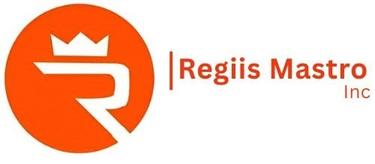
2025 Tax Planning: Key Deductions & Credits to Boost Your Refund
As 2025 progresses, it’s the perfect time for you to get ahead on your tax strategy. Whether you're employed, self-employed, or retired, being proactive about deductions and credits can significantly increase your year-end refund. Smart tax planning doesn’t start in March—it begins now. This article walks you through the most important tax deductions and credits individuals in Canada should consider throughout the year to reduce tax liability and maximize returns.
5/18/20253 min read
Understanding the Basics: Deductions vs. Credits
Before diving into strategies, it’s essential to understand two key tax tools:
Deductions reduce your taxable income. The lower your taxable income, the less tax you pay.
Credits are direct reductions in the amount of tax you owe. Some are non-refundable, meaning they reduce your tax to zero, while refundable credits can result in a refund even if you owe no tax.
Knowing how these work allows you to plan which financial moves will deliver the biggest payoff at tax time.
Key Tax Deductions for 2025
Registered Retirement Savings Plan (RRSP) Contributions
Contributing to your RRSP remains one of the most effective ways to lower your taxable income. For 2025, you can contribute up to 18% of your 2024 earned income, capped at $32,490. You have until March 1, 2026, to make contributions that count for the 2025 tax year. Your actual RRSP contribution room can be found in your 2024 notice of assessment.
First Home Savings Account (FHSA)
A newer tool introduced to help Canadians save for their first home, the FHSA combines the benefits of RRSP and TFSA. Contributions are tax-deductible, and withdrawals for a qualifying home purchase are tax-free. In 2025, you can contribute up to $8,000 annually, with a lifetime cap of $40,000.
Childcare Expenses
Eligible childcare costs—such as daycare, nannies, or certain overnight camps—can be deducted if you paid them in order to work, go to school, or run a business. Remember, these deductions typically apply to the lower-income spouse.
Employment Expenses
If your employer requires you to work from home or use your personal vehicle or tools, you may be eligible to deduct related expenses. Ensure your employer provides a signed T2200 form confirming your need to incur these costs.
Moving Expenses
Moved more than 40 kilometers closer to a new job or school? You may claim the cost of moving trucks, storage, temporary lodging, and even meals on the road. This deduction only applies to qualifying moves.
Essential Tax Credits for 2025
Basic Personal Amount (BPA)
Every Canadian is entitled to a non-refundable tax credit that allows them to earn a portion of income tax-free. In 2025, the Basic Personal Amount is $16,129, benefiting low- and middle-income earners the most.
Canada Workers Benefit (CWB)
Designed to support low-income workers, this refundable credit increases take-home income. Whether you're single or have a family, if your earnings fall within the eligible range, you may qualify for this valuable credit.
Canada Caregiver Credit
Caring for an infirm spouse, partner, or dependent? You could claim up to $8,601 for adult dependents or $2,687 for children under 18 with a disability, provided the dependent meets CRA requirements.
Disability Tax Credit (DTC)
Individuals with a severe and prolonged physical or mental impairment may qualify for the DTC, providing a substantial non-refundable credit. A certified medical practitioner must confirm eligibility.
Medical Expense Tax Credit
Out-of-pocket medical costs can be claimed as a non-refundable credit if they exceed 3% of your net income or a set threshold. Eligible expenses range from dental services to prescription medications and even medical cannabis.
Charitable Donations Tax Credit
Donating to registered Canadian charities earns you a non-refundable tax credit. The first $200 in donations earns a 15% credit, and amounts above that may qualify for a 29% or more credit, depending on your income.
Home Accessibility Tax Credit
If you’ve spent money modifying your home for seniors or persons with disabilities, such as installing grab bars or stair lifts, you may claim up to $20,000 in eligible expenses under this credit.
Strategic Tax Planning Tips
Income Splitting
Consider splitting eligible income with a lower-earning spouse or adult family member to reduce overall taxes. Commonly used by retirees (pension income splitting), this method can result in significant savings.
Timing Your Income and Expenses
For those with flexibility—especially self-employed individuals—strategically timing when you earn income or incur deductible expenses can shift your tax burden to a more favorable year.
Maximize Registered Account Contributions
RRSPs, TFSAs, and FHSAs each offer unique tax benefits. Align your contributions with your financial goals and assess which account gives you the best immediate or long-term gain.
Utilize Carryforward Amounts
If you haven’t maxed out your RRSP contributions or claimed all your charitable donation credits in previous years, you may carry those forward. Review your Notice of Assessment to see unused amounts.
Don't Forget Provincial and Territorial Credits
Each province and territory offers unique deductions and credits that can further reduce your tax bill. For example, Ontario’s Trillium Benefit or British Columbia’s Climate Action Tax Credit. Check your province’s tax guide for 2025.
Conclusion
The key to a larger tax refund isn’t luck—it’s preparation. By understanding and leveraging the deductions and credits available to you now, you’ll position yourself for maximum benefits when 2025 comes to a close. Take time today to review your finances, adjust your contributions, and seek expert advice if needed. The earlier you start, the more you save.
Join Our Monthly Tax Clinic
Understanding the nuances of tax refunds can be challenging. To bridge this knowledge gap, we host a monthly tax clinic dedicated to demystifying tax refunds and other related topics. Whether you're an employee, self-employed, or have unique tax circumstances, this clinic is designed to provide clarity and answer your questions.
Reserve your spot today by providing your email and take control of your tax knowledge!

